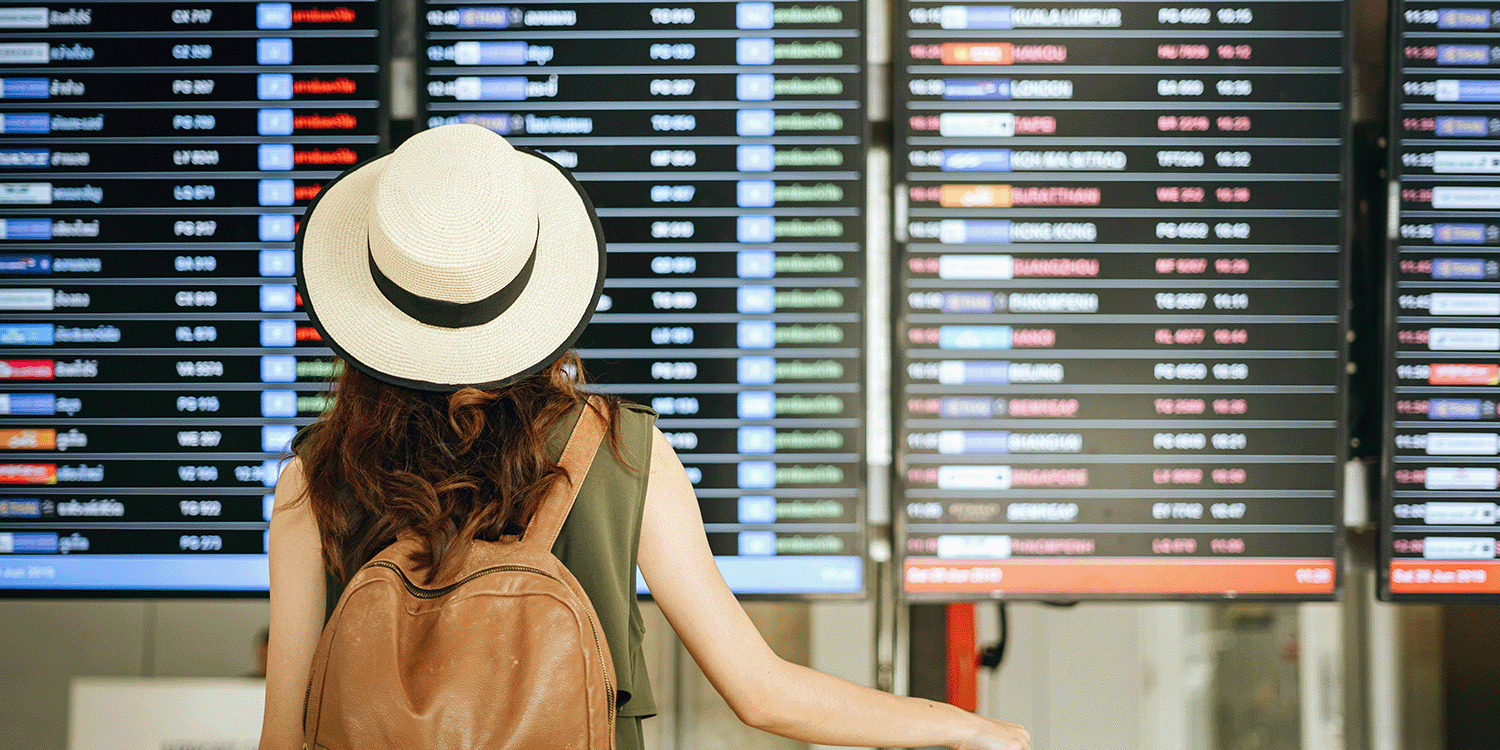
Summer Flight Delays and Cancellations: Minimizing the Impact and Navigating the Skies
Travel Advice | June 6, 2023
Summer is a popular time for travel, with millions of people embarking on vacations and business trips around the world. However, it’s important to be aware that flight delays and cancellations are not uncommon during this season. And the summer of 2023 is expected to repeat the woes of last summer with continued labor shortages among other factors. To help you navigate these potential disruptions, we’ve compiled a list of tips and advice to minimize the impact of flight disruptions. Additionally, we’ll highlight the top 10 airports with the highest delays and the top 5 major airlines with the most cancelled flights to help you plan your travels around them. Let’s dive in!
-
Use a Live Travel Agent or Advisor:
Consider utilizing the services of a live travel agent or advisor who can assist you in finding alternative flights, rebooking, and handling any complications that may arise during your journey. Their expertise can be invaluable when dealing with unexpected disruptions, and they often have direct lines into airline staff who can quickly rebook you on the best alternative.
-
Consider Travel Insurance:
Even for domestic trips, travel insurance can provide coverage for unexpected events, such as flight cancellations, medical emergencies, or lost baggage. It’s always wise to evaluate the benefits and consider purchasing travel insurance to safeguard your travel investment.
-
Utilize Credit Cards with Travel Insurance:
If you’re against the extra purchase of travel insurance, but wouldn’t mind the benefits, consider paying for your booking using a credit card that offer travel insurance as a benefit. Cards like Chase Sapphire Preferred or Reserve provide coverage for trip cancellation, trip interruption, and baggage delays, among other benefits.
-
Book the Earliest Flight of the Day:
Early morning flights tend to have a better chance of departing on time, as they are less likely to be affected by delays accumulated throughout the day. By choosing the first flight, you increase your chances of reaching your destination as planned.
-
Know Your Rights:
Familiarize yourself with your rights as an air traveler. The U.S. Department of Transportation (DOT) provides comprehensive information on passenger rights, including compensation for flight delays, cancellations, and denied boarding. Visit the DOT Fly Rights page at www.transportation.gov/airconsumer/fly-rights for more details.
-
Understand Airline Refund Policies:
Different airlines have varying refund policies in case of flight disruptions. It’s essential to be aware of your airline’s specific policies and procedures regarding flight cancellations, rescheduling, and refunds. Here are the refund policy pages for some major airlines:
-
American Airlines: Customer service FAQs − Customer service − American Airlines (aa.com) (scroll down to the refunds section)
-
Delta Air Lines: Cancellations and Refunds | Delta Air Lines (scroll down to the “Apply for a Refund for a Delta Canceled Flight section for specific details when they cancel the flight)
-
United Airlines: Refund Form & Policies | United Airlines
-
Southwest Airlines: Flight Changes and Cancellations Overview | Southwest Airlines
-
JetBlue Airways: www.jetblue.com/help/refunds
-
-
Book Non-Stop Flights:
Whenever possible, opt for non-stop flights instead of connecting flights. Direct flights reduce the likelihood of delays caused by connecting airports or weather conditions at intermediate stops.
-
Travel Light: Don’t Check Bags:
Avoid checking bags if you can. By traveling with only carry-on luggage, you eliminate the risk of your bags being lost or delayed, allowing you to swiftly navigate through airports.
-
Arrive at the Airport Earlier:
Plan to arrive at the airport well in advance of your departure time, especially during peak travel periods. This extra time allows for unexpected delays at security checkpoints, long lines, and any last-minute changes.
-
Monitor Your Reservations Closely:
Keep a close eye on your flight reservations, especially as your departure date approaches. Airlines sometimes make changes to flight schedules, and being proactive allows you to address any potential issues promptly.
-
Plan in Cushion Time:
If you’re traveling for important events, consider flying a day or two earlier. If your flight isn’t delayed, you’ve got extra time to settle in and prepare on location. If your flight is delayed or cancelled, you’ve still got plenty of time to make alternate arrangements and not miss your event.
Additional Considerations:
If you’re within a reasonable driving distance (around 7 hours or so) of your destination, it may be worth considering alternative modes of transportation. Driving or hiring a town car service can eliminate the time spent at airports and potential flight delays. Assess your options and determine what makes the most sense for your situation.
Conclusion:
Flight delays and cancellations can be frustrating, but with the right strategies, you can minimize their impact on your travel plans. Remember to use a live travel agent, consider travel insurance, book early flights, know your rights, understand airline refund policies, book non-stop whenever possible, travel light, arrive early at the airport, monitor reservations closely, and use credit cards with travel insurance benefits. Remember, when you’re getting to the airport with Executive Transportation, we actively monitor your flight status to help you address any changes early on, and ensure your transportation to and from the airport is available exactly when you need it. By being prepared and proactive, you’ll be better equipped to navigate the summer travel season with confidence and ease. Safe travels!



